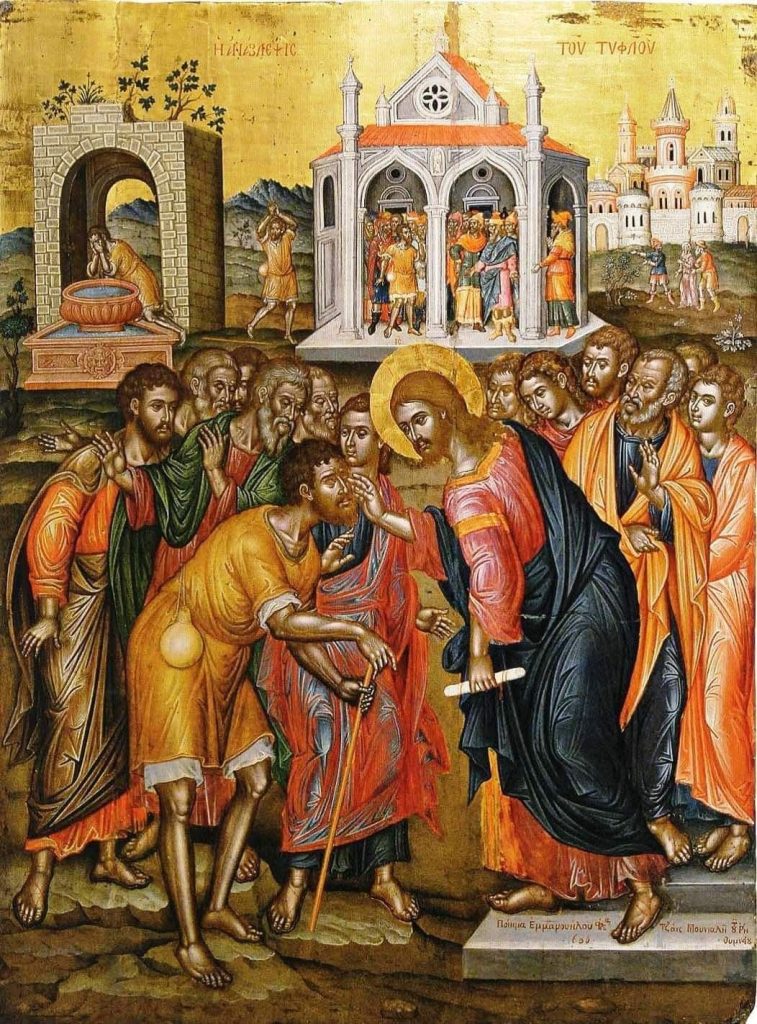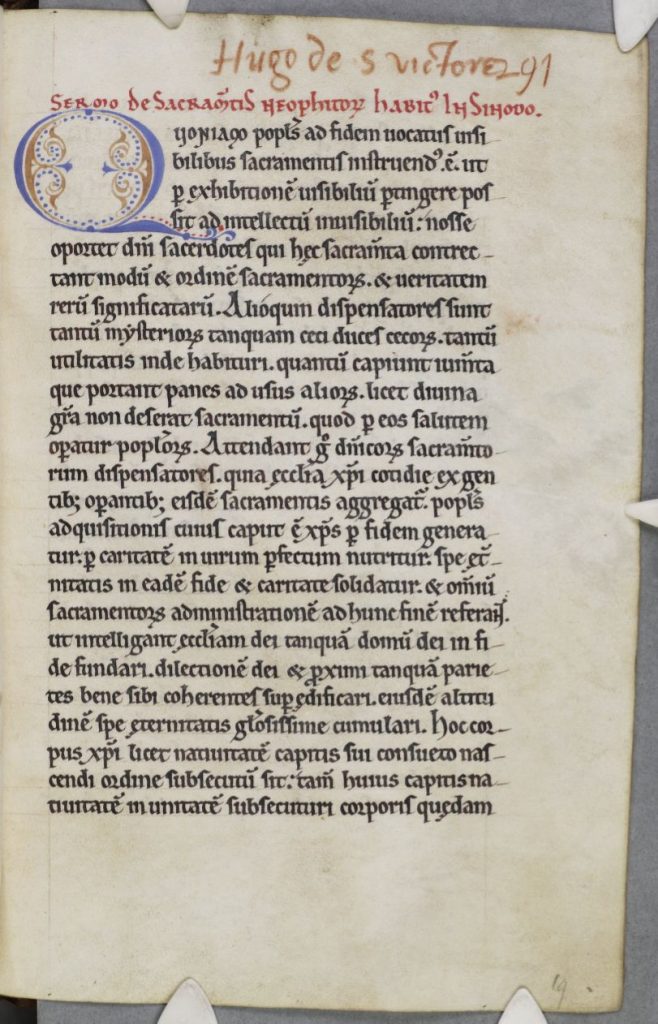Following the liturgical calendar, the second installment in the festal homilies of Ivo of Chartres pertains to the celebration of the Nativity of Christ (De nativitate). For a short discussion of the context of this work, please see my previous post about his homily on Advent (De adventu Domini).

Stylistically, there are many similarities between Ivo’s homilies on Advent and on the Nativity. Perhaps most notable is the ongoing use of parallel structure. While a bit less noticeable than in the homily on Advent, Ivo regularly contrasts human and godly nature, the Mosaic and Christian laws, Eve and Mary, etc. Throughout, the focus in the text is the economy of salvation, that is, how the life of Christ has made possible the rewards of heaven and eternal life for his listeners.
Some passages in this homily merit further reflection. The first half of the text is dominated by a meditation on Christ as the Great Physician, based on the miracle of the healing of the man born blind in the Gospel of St. John (9:6) and further echoing, although never directly citing, a passage in the Gospel of Luke (5:31, “They that are whole, need not the physician: but they that are sick”). For Ivo, in a spiritual sense, Christ applies both homeopathic and heteropathic remedies. In order to confer health “through similar things” (“sanitatem contulit aegrotis per similia”), Christ endured and overcame the physical aspects of human life – birth, suffering, and death – in order that humanity might enjoy the spiritual counterparts of each – rebirth (in baptism), the avoidance of eternal torture, freedom from eternal death. Conversely, Christ the Physician also effected a cure through opposite means (“quibus contrariis contrarios morbos evacuaverit”): he granted freedom as a servant; he overcame pride through humility; he corrected our disobedience though his own obedience.
The second half of the text settles into a style of typological commentary very typical of Ivo’s other homilies, especially his liturgical commentaries, in which he contrasts the historical accounts in Genesis and the requirements of the Mosaic Law with their Christian and New Testament parallels. The sacrificial lamb of the original Passover is a forerunner of the true Lamb. Instead of doors being marked with the blood of the sacrifice, the foreheads of the faithful are marked with the sign of Christ’s sacrifice, i.e., the Cross. In place of the Old Testament priesthood, Christ himself is the priest who offers himself, since no other priest would be worthy to make such a sacrifice. In a similar way, Eve is contrasted with Mary: the curse of Eve, to bear children in pain, is revoked in the person of Christ’s mother, who received instead a blessing (“Benedicta tu in mulieribus”).
Ivo concludes with an emphasis on the incomplete knowledge of the divine afforded to us who are still making our pilgrimage, as it were, on earth, and exhorts us to be mindful of the salvific works of Christ as a means of easing the burden of the present life.

